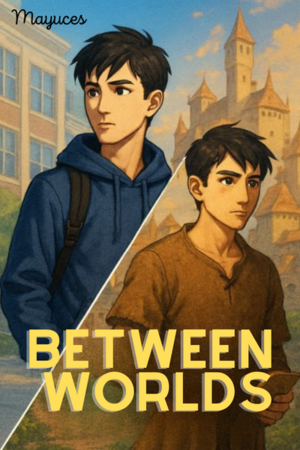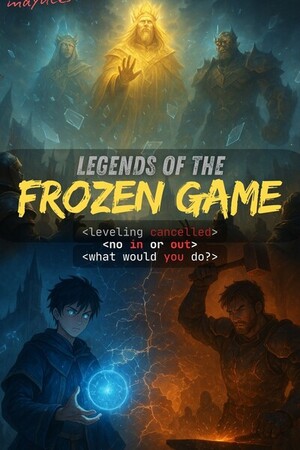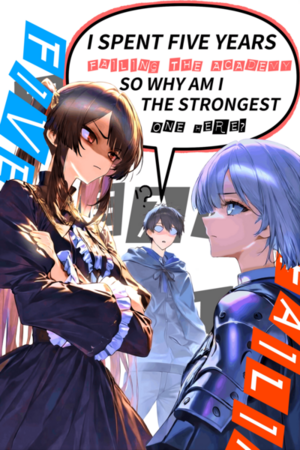Chapter 35:
CAMPUS CROSSROADS
Between Worlds
Marcus stared at the course registration screen on his laptop, his father's words echoing in his mind. "Take classes that interest you or have funny names, give it another go." The wisdom seemed simple, but the implications were enormous. He was about to officially abandon the pre-med track that had defined his identity for years.
His finger hovered over the "drop" button next to Organic Chemistry II. One click, and he'd be free from the crushing weight of medical school expectations. One click, and he could finally pursue subjects that excited him.
He clicked.
The sense of relief was immediate and overwhelming. For the first time in months, Marcus felt like he could breathe properly. No more forcing himself through courses that felt irrelevant to his real interests. No more pretending that becoming a doctor was his dream instead of his parents' sacrifice.
"Business Statistics," he typed into the search bar. "Entrepreneurship Fundamentals. Industrial Chemistry. Materials Science."
Each course he added to his schedule felt like a step toward authenticity. These were subjects that could help him in both worlds, business knowledge that applied to his Valdris ventures, chemistry that could improve his innovations, materials science that might revolutionize everything from soap making to printing.
"Knock knock!" Tyler's voice accompanied his dramatic entrance through the dorm room door. "Marcus, my academically mysterious roommate, how goes the scholarly pursuit of... wait, what are you studying now?"
Marcus minimized his registration screen and turned to face Tyler, who was carrying what appeared to be a new microphone and several cables. "Changing my focus. Less pre-med, more business and applied sciences."
"Interesting pivot." Jake appeared in the doorway behind Tyler, carrying his usual stack of textbooks. "Everything okay? This seems like a major decision."
"Everything's fine," Marcus said, which wasn't entirely true but wasn't entirely false either. "I just realized that what I thought I wanted and what I want are two different things."
Tyler set down his equipment and studied Marcus with the analytical intensity he usually reserved for optimizing streaming setups. "You seem... different. But in a good way. Like you've been playing the wrong game and just realized it."
"That's a perfect analogy," Marcus replied, impressed by Tyler's insight. "I've been trying to speedrun someone else's objectives instead of pursuing my own interests."
Jake sat down on his bed, clearly settling in for a serious conversation. "Marcus, I have to ask, is this about the grades? Because if you're struggling with pre-med coursework, there are tutoring options, study groups..."
"It's not about struggling," Marcus interrupted gently. "It's about realizing I never wanted to be a doctor in the first place. I wanted to help people, solve problems, build things that matter. But there are other ways to do that besides medicine."
"Like what?" Jake asked, genuine curiosity replacing his concern.
Marcus thought about his printing press innovations, his soap business, the countless small improvements he'd made to life in Valdris. "Business, innovation, finding practical solutions to everyday problems. Taking knowledge from one context and applying it creatively in another."
"That's cool," Tyler said enthusiastically. "I've always thought entrepreneurship was underrated as a way to make positive impact. Look at all the successful streamers who started with weird ideas that no one thought would work."
"Speaking of weird ideas," Marcus said, "I need to do some research tonight. Tyler, you're good at finding information online, right?"
"Are you kidding? Information acquisition is literally my superpower. What do you need?"
"Papermaking methods. Specifically, low-tech approaches that don't require industrial machinery. Traditional techniques, historical processes, anything involving basic materials and simple tools."
Jake raised an eyebrow. "That's oddly specific. Is this for a class project?"
"Sort of. I'm interested in how people solved manufacturing problems before modern technology. Understanding the principles behind industrial processes by studying their origins."
Tyler was already pulling out his laptop. "Dude, this is gonna be fun. I love weird research rabbit holes. Give me fifteen minutes and I'll have you drowning in information about ancient papermaking techniques."
"Why papermaking specifically?" Jake asked.
Marcus chose his words carefully. "Information storage and transmission. Paper is one of humanity's most important innovations, it enabled the spread of knowledge, record keeping, mass communication. Understanding how it works at a fundamental level seems like valuable knowledge."
"Huh." Jake looked thoughtful. "You know, that's a sophisticated way to think about technology. Most people just accept that paper exists without considering the engineering challenges involved in creating it."
"Exactly!" Marcus felt genuine excitement building. "Think about it, someone had to figure out how to break down plant fibers, create consistent pulp, form it into sheets, dry it properly. Each step represents solved problems and accumulated knowledge."
Tyler looked up from his laptop screen. "Okay, I'm finding some fascinating stuff. Ancient Chinese techniques using bamboo and mulberry bark, Egyptian papyrus methods, medieval European approaches using cotton rags. Where do you wanna start?"
"All of it," Marcus said immediately. "I wanna understand the principles behind each approach, what materials they used, what tools were required, how the techniques spread between cultures."
"This is gonna take a while," Tyler warned, but his tone suggested he was looking forward to the challenge.
"I've got all night."
For the next several hours, Marcus immersed himself in research with the intensity of someone whose life might depend on the information. Tyler proved to be an invaluable research partner, his online investigation skills uncovering everything from academic papers on historical manufacturing to YouTube videos demonstrating traditional techniques.
"Look at this," Tyler said, pointing to his screen. "This guy in rural Japan is still making paper using eighth-century methods. Wood ash for alkali treatment, manual fiber separation, simple wooden frames for sheet formation."
Marcus leaned over to study the video, taking notes on the step-by-step process. The techniques were remarkably similar to what he'd been developing in Valdris, but with refinements that centuries of practice had produced.
"What about binding agents?" Marcus asked. "How do they make the fibers stick together properly?"
"Multiple approaches," Tyler replied, scrolling through search results. "Plant-based mucilages, animal glues, starch preparations. Each culture seemed to develop solutions using whatever materials were locally available."
Jake, who had initially planned to study his own coursework, found himself drawn into their research session. "This is interesting. I had no idea papermaking was so chemically complex."
"Everything is chemically complex when you dig deep enough," Marcus replied, still scribbling notes. "The difference is whether people understand the underlying principles or just follow traditional methods without knowing why they work."
"Which are you trying to do?" Jake asked.
"Both. Understanding the principles gives you the ability to improve the methods, adapt them to different materials, troubleshoot problems. But traditional techniques often contain centuries of accumulated wisdom that's hard to replicate through pure theory."
Tyler pulled up another video, this one showing traditional papermaking in rural Mexico. "Check this out, they're using agave fibers and lime water. Completely different materials, but the basic process is remarkably similar."
Marcus watched intently, noting how the craftsman tested the pulp consistency, how he formed the sheets, the specific timing involved in each step. These were the kinds of practical details that could make the difference between success and failure.
"Tyler, can you bookmark everything we've found? I wanna review all of this again tomorrow."
"Already on it. I've created a research folder with subcategories for different techniques, materials, and geographic regions." Tyler's organizational skills, honed by years of content creation, proved invaluable for academic research.
As midnight approached, Jake finally called a halt to the session. "Guys, this has been fascinating, but some of us have eight AM classes tomorrow."
Marcus looked up from his notes, surprised by how much time had passed. He'd filled nearly twenty pages with information about fiber preparation, alkali treatments, sheet formation techniques, and drying methods. More importantly, he'd gained a much deeper understanding of the principles behind successful papermaking.
"This was incredibly helpful," Marcus said sincerely. "Tyler, your research skills are amazing. Jake, thanks for putting up with our obsessive information gathering."
"No problem," Jake replied. "Just... Marcus?"
"Yeah?"
"I'm glad you're finding your direction. You seem more engaged with this stuff than you ever were with pre-med coursework. Whatever you're planning to do with all this knowledge, I think you're gonna be successful at it."
After his roommates had settled in for the night, Marcus continued reviewing his notes by the light of his desk lamp. Each technique he'd studied offered insights that could improve his Valdris innovations. The Japanese methods could enhance his paper quality, the Mexican approaches might work with different local materials, the historical European techniques could provide solutions to specific problems he'd encountered.
But more than the technical details, the research had given him something else: confidence that his approach was sound. Across cultures and centuries, humans had solved similar problems using similar principles. His innovations weren't just random experiments, they were part of a long tradition of practical problem-solving and technological development.
He thought about Alice working in the Academy library, about the scribes who struggled with expensive parchment and limited writing materials. The techniques he'd learned tonight could revolutionize scholarly work in Valdris, making knowledge more accessible and affordable.
He thought about Aldric's business struggles, about the economic opportunities that better papermaking could create. Not just immediate profits, but the foundation for expanded trade in books, records, correspondence, all the information economy that supported advanced civilizations.
Most importantly, he thought about his family, about the precarious position they'd finally managed to escape. Knowledge was security, innovation was opportunity, and tonight's research had given him both.
Marcus carefully organized his notes, categorizing information by technique, material, and potential application. Tomorrow night, he would begin planning specific experiments for Valdris. Tonight, he would sleep with the satisfaction of someone who'd found what he was looking for.
The career change had been the right decision. For the first time since starting college, Marcus felt like he was studying subjects that mattered to his life and goals.
Both of his lives, and all of his goals.




Please sign in to leave a comment.